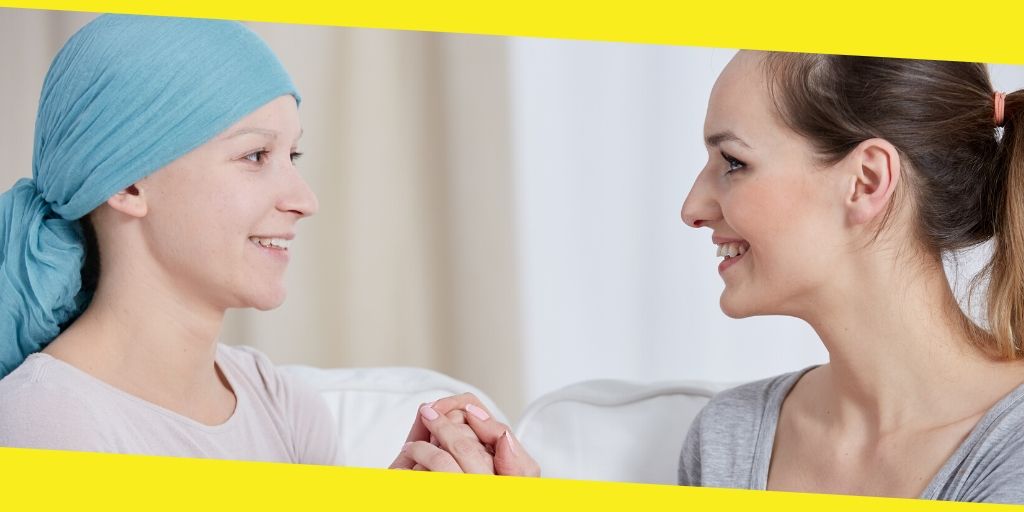How To Help a Friend With Cancer
This post was last updated on July 7th, 2023

Finding out that your friend is diagnosed with cancer can bring out a lot of emotions inside you. Since this is somebody you are close to, it’s understandable that you want to help – that you want him/her to know that you are there. However, it can be difficult for anyone in your position to find the right words to say and the right things to do. To make this easier for you, here are some ways on how to help a friend with cancer.
Contents
ToggleWhat You Should Do Before Meeting Your Friend
1. Process your feelings
According to Dr. Lidia Schapira in her video about “Talking With Someone Who Has Cancer“, you will be in a better position of being a good friend if you can process and think about your feelings. Letter writing is a great way to process your own feelings.
So before seeing your friend, it’s important to take the time to cope with your emotions. Only then can you put aside your thoughts and not think about what you should say or feel. This way, you can be a better supporter and listener, and be there to focus on your friend.
2. Be prepared
Before seeing your friend, it will be best if you know what changes he/she will experience. Some of the common physical side effects that you should be ready to see are fatigue, weakness, vomiting, hair loss, and weight loss. Even if you notice such changes, don’t mention this when you meet. Instead, start your visit with “It’s good to see you”.
You might also notice your friend’s mood changing now and then. From Cancer Research UK, these emotions are normal for anyone diagnosed with cancer. Expect to see a variety of emotions, ranging from anger, sadness, guilt, fear, loneliness, resentment, grief, frustration, isolation, and uncertainty. Once you understand these emotions better, it will be easier for you to support your friend.
3. Ask before visiting
Whether you’re visiting your friend at home or in the hospital, you should ask first before visiting. Meredith Cammarata, a social worker from Memorial Sloan Kettering Cancer Center, says being sick is unpredictable. Thus, Cammarata recommends giving your friend permission to say no to a visit, and that you should be flexible and understanding when your friend cancels at the last minute. Lastly, if you reach out but your friend is not returning your calls, texts, and emails, don’t take it personally.
How to Help a Friend with Cancer?
Dr. Schapira says that the best thing you can do when your friend is diagnosed with cancer is to show your care and express your support as quickly as you can without waiting. If you don’t see your friend often, you can call, send a text message, or have a video call to show you care. Also, don’t forget to let your friend know that it’s okay if he/she will not respond.
It’s normal to feel afraid of saying the wrong things to someone with cancer. To lessen your fear, here are some tips to show your care and support.
To do:
- It is okay to say that you feel awkward or that you’re feeling lost. See, acknowledging the situation is better than pretending it’s not happening. You can say something like, “This is hard. I don’t know what to say”.
- Ask how you can help and never make assumptions about what your friend wants or needs. You can say, “What are you thinking of doing and how can I help?” or “How can I be most helpful to you?”
- Let your friend know that if he/she wants to talk, you are there to listen. Say something like, “If you ever feel like talking, I’m here to listen.” But make sure that you can deliver on your promises and that you are truly available.
- Take cues from your friend. If he/she seems evasive of the topic of cancer and treatment, respect that and think of other things to say. Liz Blackler, a social worker at Memorial Sloan Kettering Cancer Center, suggests saying something like, “Do you want to talk about it? If so, I’m here. If not, let’s get lunch and talk about the latest gossip in the neighborhood.”
- Just be honest. If you want to remind your friend that you care, tell him/her. If you’re thinking about him/her, do so. Being honest means you can be a great support.
Not to do:
- Never say that you know how your friend feels because you don’t.
- Don’t tell someone to be strong or to be positive as this puts pressure on him/her to act in a certain way.
- Offer advice that your friend didn’t ask for.
- Compare his/her situation to someone you know.
Other Ways to Help Your Friend
Offering practical support is certainly one of the most helpful things you can do for a friend. You can suggest to assist in everyday errands such as babysitting, doing laundry, grocery shopping, pick up prescriptions, help with household chores, or drive him/her to an appointment.
Aside from that, you can also organize a phone support team. Many people with cancer say keeping friends and family updated about their status can be very taxing. But with a phone team, you can assign only one person from your circle to reach out and update the rest of the group.
Finally, treating him/her the same way and doing the things you used to do together can further help your friend in the healing process. This will let your friend know that his/her condition will not get in the way of your friendship.
With these suggestions in mind, always remember that your care and encouragement is needed from the beginning, during, and after the treatment. Having a great support system throughout the whole diagnosis will certainly make a lasting impact on someone living with cancer.
Recommended For You
5 Ways To Invite Good Things In Your Life
Most Inside
Most Inside offers high-quality recommendations and valuable updates to enhance all aspects of your life, providing premium guidance and enriching experiences.




